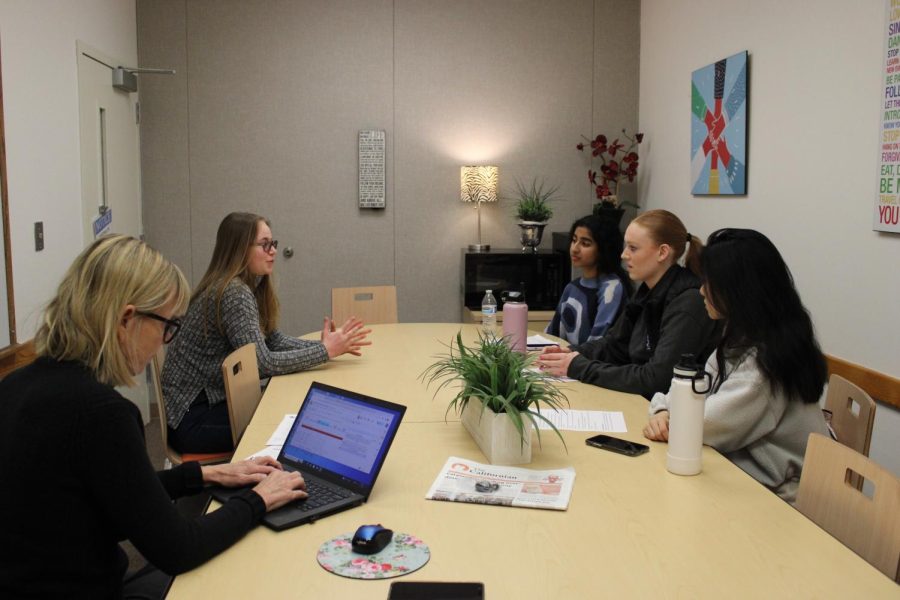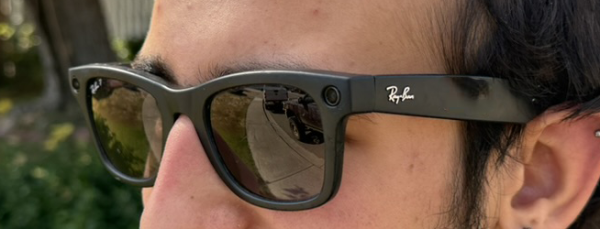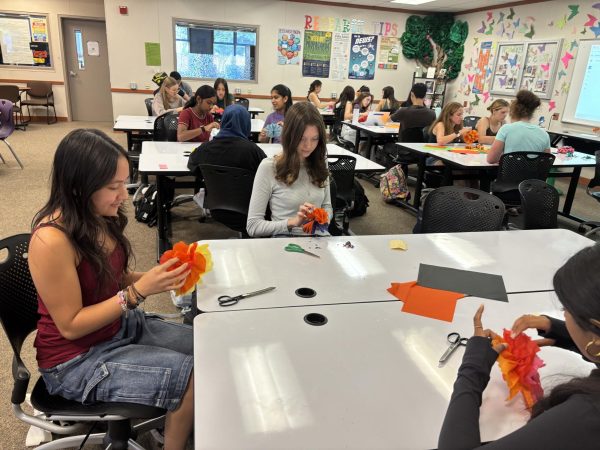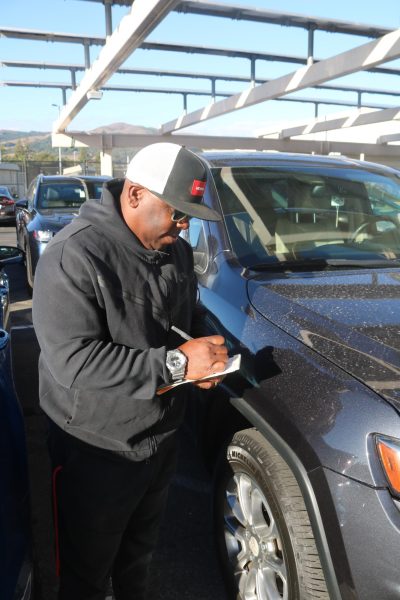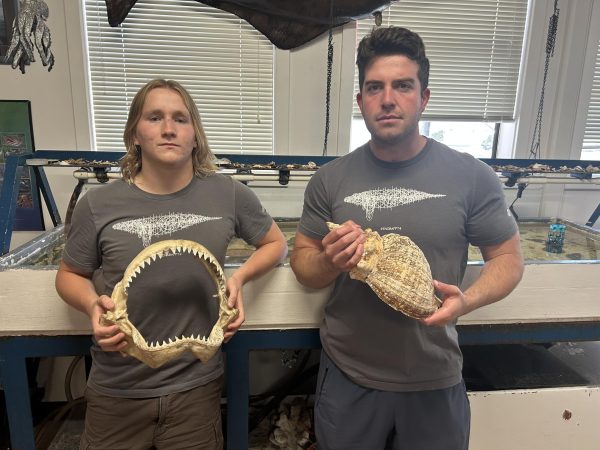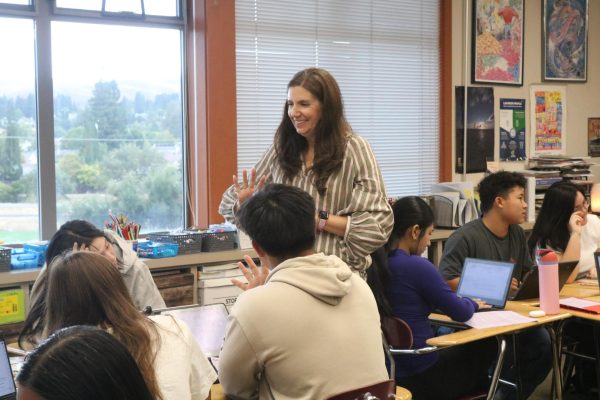Courses interview to find the right students
Classes such as leadership, music require applications
Junior Brooke Johnson is interviewed by three seniors to get into iQuest. Advisor Michelle Turner is present with a laptop
While filling out lengthy applications and attending interviews and auditions can be a long process, it is worth it for students with interests in classes such as leadership, iQuest, Intro to Law, and theater.
These classes use the application process to ensure students are truly interested in the program and can handle the rigorous requirements the programs demand.
The Theater 3 and 4 classes are taught by Laura Woods, who requires auditions of all prospective actors. Students auditioning must prepare a 1-2 minute monologue of their choice from a published play to perform. Apart from performing, students must complete an application and have at least one year of Theater 1 or 2.
Woods merged Theater 3 and 4 into one class about seven years ago because she didn’t have enough students to fill a complete Theater 4 class. Students in this class are generally the most advanced actors. Woods said she accepted about half of the 60 students who auditioned for Theater 3 and 4 this year.
“For my actors, I want them to be responsible, I want them to be team players, I want them to be punctual. Then I want talent,” Woods said. “They are basically working together to produce something and if they are difficult to work with, it’s not going to fly.”
Woods also hosts auditions and interviews for her ROP Play Production class, which is said to be the most advanced theater class. It includes students who want to act as well as help build sets and support actors as techies by working on lighting, managing the stage and making costumes.
“We talk to [prospective students] about any previous training they had and what they are really interested in,” Woods said. “We need to know who is trained in power tools or who wants to be trained and what their focus will be when they come to Play Production.”
To join Play Production, students need to be at least 16 years old or a junior. Since the class requires a two-year commitment, Woods expects students who work in Play Production to be mature and to know their way around sets. Since they will be working with electricity and power tools, she wants them to be mindful of their surroundings.
Senior Darren Murphy, who is in his second year of Play Production, decided to switch over to the more tech-involved side of Play Production this year after focusing on acting last year. He still takes on lead roles because he loves being on stage.
“I auditioned sophomore year and was accepted for junior year,” Murphy said. “My experience has been good. I have taken on lead roles, designed and built sets, and grown as an actor and designer.”
Some other performing art classes such as dance, chamber orchestra, and chamber singers also require auditions to join as well.
Lori Willis teaches all three classes and is the one who usually reviews auditions, which are recorded and sent to her. The upper level dance composition and dance company classes require students to send in a video of them dancing.
“Dance students are free to present what they are comfortable doing,” Willis said.
Sophomore Gisela Lau has been dancing for nine years and joined dance company because she likes having the freedom to create her own choreography.
“I like having so much freedom to choose what I want to create,” Lau said. “I joined dance to get more choreography and performing experience.”
For chamber orchestra and chamber singers classes, students must meet a few requirements for the audition tape. For orchestra, students usually have to do a scale and present a piece of their choosing. They also have to play a few excerpts from select orchestral pieces.
Sophomore Spencer Kogoma, who is the chamber orchestra’s assistant concertmaster, took the online audition before the school year began.
“They give you repertoire to practice and then you have to play scales and a solo piece,” Kogoma said. “After that, you need to send it through email.”
The same goes for chamber singers as students are given a few excerpts from oral pieces which they must perform. They must sing “The Star-Spangled Banner”, and can include something of their choosing as well.
“I auditioned toward the end of my sophomore year and it was my first time participating in an actual choir since I have only done Carnatic music, which is a traditional Indian style of vocal music,” said senior Sunnhita Nittala, who is the chamber singers’ Alto 1 and plans on minoring in music at UC Berkeley next year. “Despite our choir lacking strength in numbers, we have some of the most talented singers I’ve ever met and when we come together, we bring the compositions we sing to life.”
Beyond performing arts classes, yearbook is another class that requires applications and interviews to join. To apply, students must complete a Google form, which asks questions about their schedule, interest in the class and why they think they should be accepted. After that, recruiters call applicants and get to know more about them during an in-person interview.
Sophomore Aditi Medempudi, who is finishing her second year on the yearbook staff, said applications are easier for returning students because all they have to do is fill out a modified Google form.
Yearbook teacher Jamie Brindley believes the class has a lot of freedom and that it requires a lot of interaction with other students.
“It’s not like a normal class where you are just sitting and the teacher teaches you,” Brindley said. “I need to know that I can trust students to be able to go out and conduct interviews.”
For students who want to gain work experience, there is also the iQuest program which helps students find internships. This program has among the most students interviewing for the three classes, which are offered during fifth, sixth and second periods.
This year, there were about 160 applications, all of whom completed applications and were interviewed by iQuest advisers Michelle Turner and Shanna Gagnon. Some current students helped facilitate the interviews but both teachers were present.
“We ask students questions to see if they are passionate about the field they want to go into,” Turner said. “We are looking for kids who have an idea of what they want to do.”
Students who are accepted into the program are assigned mentors who are current iQuest students and they are coached on the process of applying to internships.
“We make sure the students are a right fit for the program first and then we understand what their areas of interest are,” Gagnon said. “Then we assist with the placement of internships based on their specific interests.”
Junior Nitish Medikonda registered for iQuest and completed his interview in April.
“I want to join iQuest to learn more about internships and what I want to do in the future,” Medikonda said.
Cal’s Intro to Law class, which is a higher level class for teacher Brian Barr’s mock trial program, also conducts auditions and interviews each year.
Junior captain Avery Cross said auditions and interviews are required to assess students’ public speaking skills and stage presence.
As an incoming freshman, Cross filmed her audition and shared it with Flipgrid because of the COVID-19 lockdown. But auditions have since returned to in-person for the past two years.
“Over Zoom we did a short speech over a topic of our choosing,” Cross said. “However, in person last year the audition was brief speeches again over any topic of their choosing in front of our teacher and captains.”
Leadership applications are open to all students. After applications are due, some students who applied go through an interview process. Then after interviews, the ASB and leadership advisors, and the Leadership officers put students into Teams based on what they applied for.
This year, leadership had around 100 applications but selected only 60 students to interview.
Senior leadership President Simi Shetty said the class looks for students who have enthusiasm and the potential to grow as a leader.
“[Interviewing leadership] is all about taking initiative and making sure you take that step to make sure that everyone at Cal High has an experience they can remember,” Shetty said.
Sophomore Lily Sims applied to leadership because she wanted to see the campus come together as a greater community.
“I think leadership tries to host a lot of events that work to achieve [bringing people together],” Sims said.
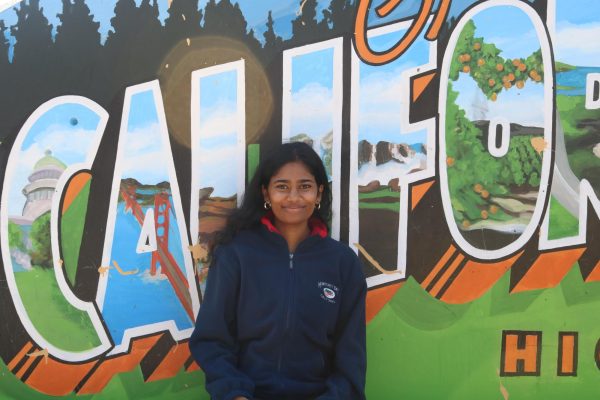
Senior Mansi Swaminathan is returning for her fourth year with The Californian, now as Editor-in-Chief. Her main goals for the paper this year are to get...
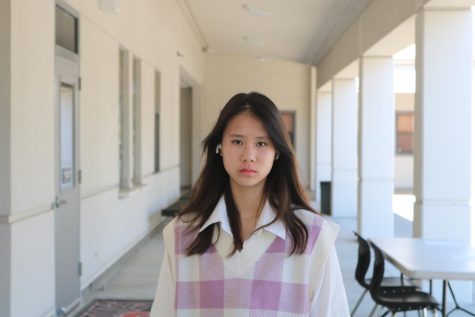
Senior Christine Wang has no idea what her role is, but is happy to be a part of the Californian. She often struggles to do most of her work because she...
